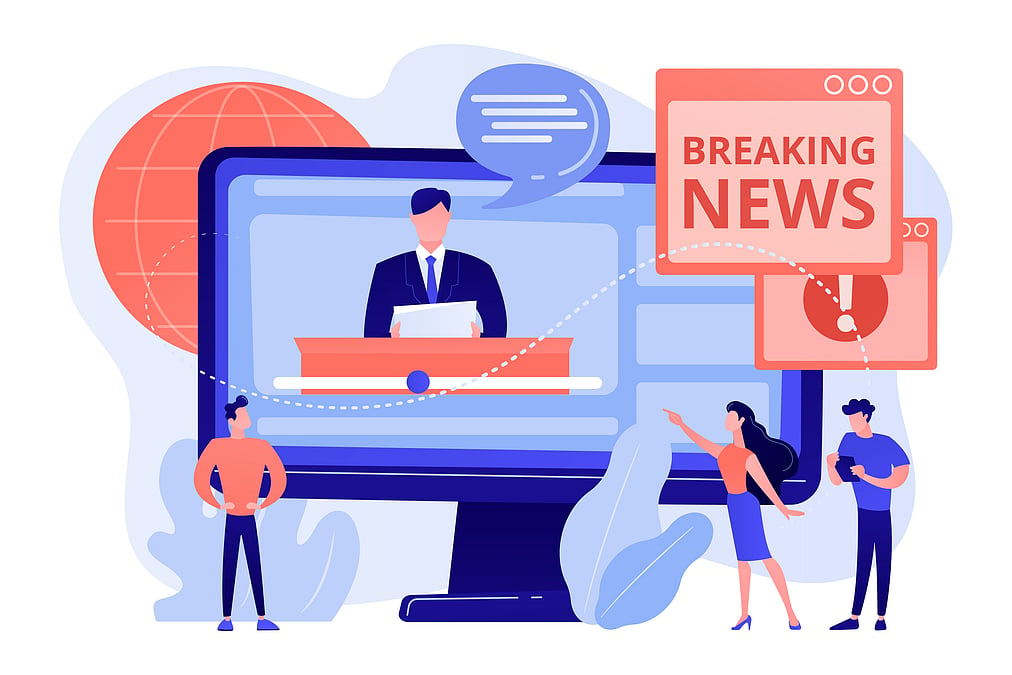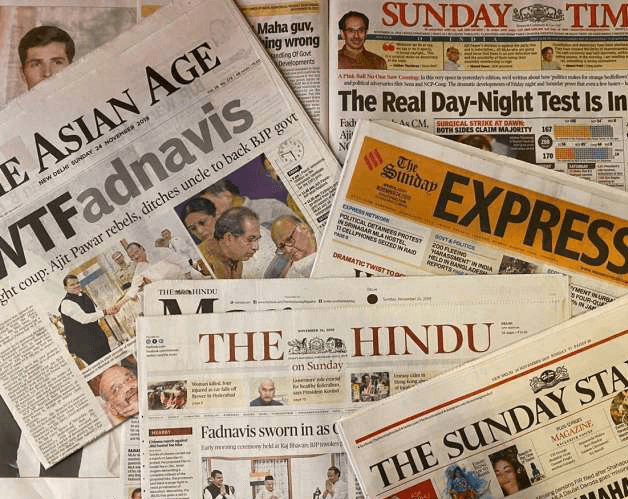Online News Fundamentals Explained
Online News Fundamentals Explained
Blog Article
A Biased View of Online News
Table of ContentsThe Online News PDFsTop Guidelines Of Online NewsOnline News Fundamentals ExplainedNot known Details About Online News The Ultimate Guide To Online News
Figures for the percentage of individuals paying for on-line information were within the margin of mistake for both surveys. Let's very first consider people who have access to information that you would normally have to pay for. It makes feeling to begin here since some people have access to paywalled information with cost-free tests, via their job, and more.There are different forms of gain access to, however the three most typical are memberships to on-line information from a solitary brand name, memberships to a print/digital package from a single brand, and a membership to several brand names accumulated in one location. Of these, digital-only memberships to a single brand are one of the most typical type of gain access to in all three countries.
Paid news aggregators are relatively popular in the US, mainly many thanks to Apple Information+, yet presently these are much less common than subscriptions to solitary information brand names. As we saw in the Executive Summary, individuals mostly have accessibility to one of a small group of noticeable brand names. In the United States, over half of these people have accessibility to either the New York City Times or the Washington Article, and in the UK, it's The Times or the Telegraph.
The Online News Statements
Nevertheless, the majority of this group have access due to the fact that they are paying for subscriptions with their very own money 75% in Norway and the UK, and 84% in the US. For under-45s the figure is reduced. Amongst those 45 and over, the vast bulk of those who have gain access to are paying with their very own money.
In the United States and specifically Norway, numerous authors have actually introduced paywalls, which suggests more individuals will certainly be asked to pay possibly enhancing a sense of shortage and developing a feeling that news can be worth spending for. In the UK, by comparison, just a relatively handful of magazines attempt to charge for news.
In this regard it is fascinating to compare the different reasons customers give up the United States and United Kingdom for paying for online information. Overall, one of the most important factor is the diversity and top quality of the web content. In both nations, customers believe they are improving information than from free resources.

Online News Can Be Fun For Anyone
These additional components appear to be specifically beneficial for retention as they build practice and are less replicable elsewhere. For Norwegians also the diversity of web content triumphed in addition to comfort and simplicity of use. 'Aftenposten is a major newspaper with fantastic quality', claimed one respondent, yet it was striking Recommended Reading that 'supporting good journalism' is much less of a motivation (21%) maybe since mainstream media electrical outlets are seen as less polarised in Norway.
In addition, around half of those that currently have open door claim that they may start paying if their cost-free gain access to goes out. This is encouraging, and possibly extra encouraging still is that these numbers suggest retention prices that approach those for registrations to video and audio streaming services like Netflix and Spotify.
It can likewise be viewed as a valuable tip that people do not necessarily subscribe for life, and boasts concerning the number of 'brand-new subscribers' may not be informing the whole tale (Online News). There's substantial 'spin' in this area, as lots of people finish their free tests prior to they have to pay, or just cancel their memberships to invest their money on various other things
Female, 37, Norway It cost method way too much and I can get round the paywall. Male, 36, United States Too expensive, really felt there was absolutely nothing I couldn't obtain completely free on Apple Information. Female, 19, UK anchor In the UK, the variety of individuals that used to have actually access to paid news (10%) is close to the variety of people that currently have accessibility (9%) with the equivalent figures from the United States and Norway higher still (albeit lower than the number of individuals with access).
The Ultimate Guide To Online News
As we have actually currently seen, existing customers are reasonably happy, but with income from digital marketing unclear many publishers will be seeking to increase the variety of brand-new customers. In contrasting our 3 nations we see some interesting differences that can inform publisher methods. We observe a really high proportion (40% in the US and 50% in the UK) that say that nothing could convince them to pay.
However in Norway, where interest in information often tends to be higher and where cost-free news is a lot more restricted only 19% say they couldn't be encouraged. Price and ease are a few of the essential factors that might make a difference. In Norway, a 3rd (30%) state they could subscribe if it was less costly and 17% if they might pay to gain access to multiple websites from a single payment.
Publishers have increasingly been supplying differential rates to get business from those not likely to pay full rate (e.g. overseas clients and students). Paying to stay clear of intrusive promotions is one more possible path for authors, with around one in seven participants in all three countries stating this this might lure them to subscribe.

Some Known Incorrect Statements About Online News
The fear of losing out can be a powerful obstacle. Some electrical outlets currently ask readers to register with them in order to have the ability to access a tiny number of articles free of cost. Lots of reporters would certainly see this as a reasonable compromise, but the public are much more skeptical. In all 3 nations less than half think registering is a fair trade, but it's likewise clear that people are not strongly opposed either.
In between 13% and 22% in our three countries say they registered to gain access to news content in the last year. Some are also making use of various other strategies to obtain around paywalls such as resetting cookies, altering their web browser settings, or perhaps downloading dedicated software. Simply a 3rd say they have ever attempted to do something such as this, as it needs a certain degree of electronic literacy, and many are probably not aware that is a possibility.
People have various sights about the civil liberties and misdoings of trying to sidestep paywalls. Couple of would certainly argue that this is constantly understandable, yet some visit our website people do have reservations around crucial public-interest journalism only being available to those willing and able to pay for it. A paywalled expositions of the UK federal government's handling of the coronavirus break out by the Sunday Times resulted in a warmed dispute regarding the issue on Twitter, with some attempting to openly share the full write-up.
Report this page